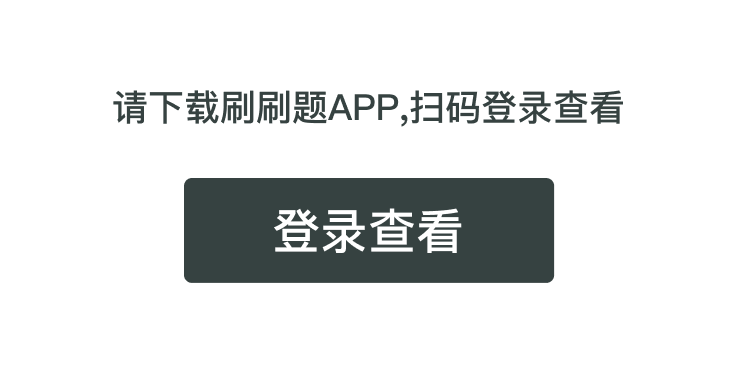大学职业资格刷题搜题APP

创建自己的小题库
搜索
【单选题】


Part Ⅱ Reading Comprehension (Skimming and Scanning) Directions: In this part, you will have 15 minutes to go over the passage quickly and answer the questions on Answer Sheet 1. For questions 1-7, choose the best answer from the four choices marked A), B), C) and D). For questions 8-10, complete the sentences with the information given in the passage. The End of the Cash Era In the spring Adam Smith will replace Sir Edward Elgar as the face on Britain's £20 note. The first economic thinker to be so honored could well be the last. Not because economists are especially undeserving, but because cash, after millennia as one of mankind's most versatile and enduring technologies, looks set over the next 15 years or so finally to melt away into an electronic stream of ones and zeros. If an era is represented by its money, the information age is at hand. Notes and coins are already a small fraction of the money in most rich countries. But going by the number of transactions rather than their value, we still live firmly in a cash society. The European Payments Council estimates that the European Union's 360 billion cash transactions cost at least 50 billion a year others put the bill at 200 a head. Visa, a huge credit-card alliance, reckons cash accounts for most of the $1.3 trillion spent a year across the world on small-ticket items. Whether queuing to get money out and queuing again to spend it, or breaking a $100 bill with an irate(发怒的) cab driver one minute and having your pockets and purses fat with coins the next, cash is plainly still king. Yet signs of the new order are everywhere. On February 12th, 19 telephone operators with networks in over 100 countries said that people would be able to use their handsets to send money abroad. Card will operate the system in which remittances(汇款) will be sent as text messages. For people without bank accounts, the credit can be converted into pre-paid cards which can then be used to buy things. 'It will revolutionize the money-transfer business,' said Sunil Bharti Mittal, boss of Bharti Airtel, one of India's biggest mobile operators. The idea is to tap into the more than$250 billion a year that immigrants and migrant workers send to relatives and friends back home. Britain's Vodafone and America's Citigroup are also launching an international money-transfer service developed from the M-PESA remittance service which is already operating successfully within Kenya. Sir John Bond, formerly chairman of the HSBC banking group and now chairman of Vodafone, has long been convinced that payments and mobiles would somehow converge. 'Mobile phones have the ability to make a dramatic change to village life in Africa,' he says. He also thinks phones loaded with credit will make many of the payments people use cash for in rich economies. For banks with high infrastructure costs, says Sir John, it has always 'been hard to make money out of small payments'. But lower-cost business models, some of them from developing countries, are opening up new opportunities. The big attraction of the mobile phone as a purse is that so many people have them --even children. Both Card and Visa have recently introduced plastic cards in America that do not have to be swiped for purchases under $25. Later this year a 'dual intece' system will be tested in London. It will involve a single plastic card which combines an Oyster for travel, a standard Visa card issued by Britain's Barclays Bank for 'chip and PIN' payments and a new 'wave and pay' Visa for instant transactions up to £10. Nobody can be sure how fast bits and bytes will drive out metal and paper. A hundred years ago you could still pay your taxes in Uganda in cowrie shells. Perhaps hard cash wil
A.
Because no economic thinker could be more honorable than Adam Smith.
B.
Because cash is most versatile and enduring.
C.
Because cash will predominate in an electronic stream of ones and zeros finally.
D.
Because electronic currency will replace cash in the future.

题目标签:汇款
 分享
分享
 反馈
反馈 收藏
收藏 举报
举报
参考答案:


举一反三
【多选题】汇款限额设置的规则有哪些()
A.
此限额不可大于银行默认汇款限额
B.
柜台设置此限额可大于银行默认汇款限额
C.
通过网上个人银行客户端系统自定义限额可大于此限额
D.
通过网上个人银行客户端系统自定义限额不可大于此限额

相关题目:
【多选题】汇款限额设置的规则有哪些()
A.
此限额不可大于银行默认汇款限额
B.
柜台设置此限额可大于银行默认汇款限额
C.
通过网上个人银行客户端系统自定义限额可大于此限额
D.
通过网上个人银行客户端系统自定义限额不可大于此限额

参考解析:


题目纠错 0
发布

 复制链接
复制链接 新浪微博
新浪微博 分享QQ
分享QQ 微信扫一扫
微信扫一扫





